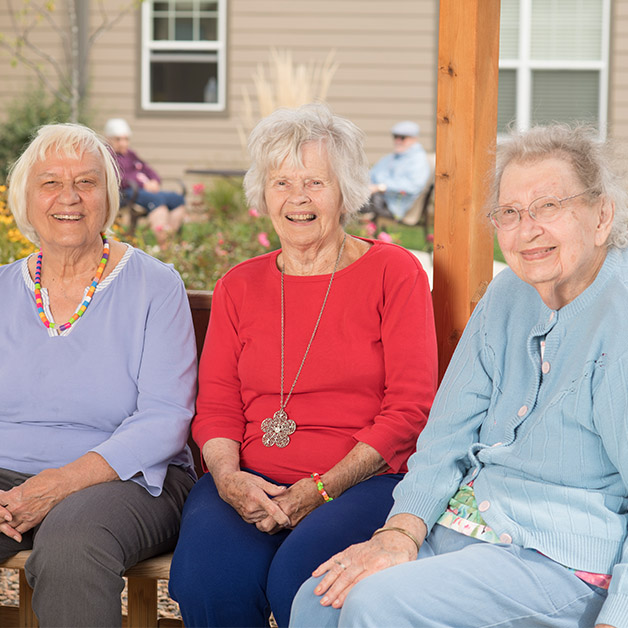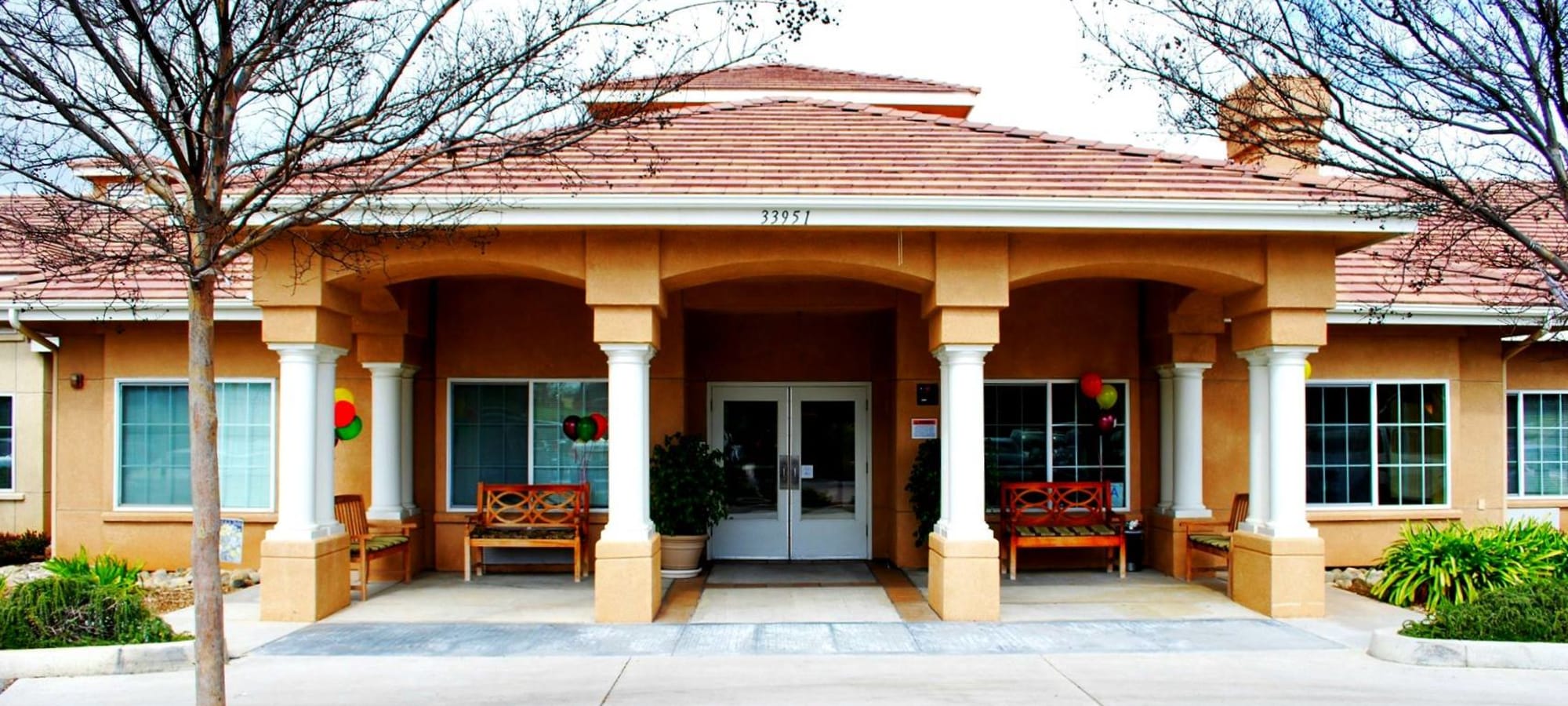Premier Charlotte Memory Care: Specialized Senior Citizen Care Solutions
Creating a Safe and Supportive Environment: In-Home Memory Treatment Basics
Developing a protected and caring setting for people needing in-home memory care is paramount to their wellness and lifestyle. From ensuring security within the space to employing efficient interaction strategies and executing memory-friendly style aspects, there are important elements that add to an alternative treatment approach. By concentrating on creating an encouraging ecological community that accommodates the distinct demands of those with memory problems, caretakers can significantly boost the day-to-day experiences of their enjoyed ones.

Safe Living Setting
Developing a secure and hazard-free living environment is paramount when providing in-home memory take care of people with cognitive impairments. Making sure the safety of the specific with amnesia is important to stop accidents and promote a feeling of well-being. One necessary aspect of producing a safe living environment is to eliminate any kind of possible risks that can cause slides, journeys, or falls. This includes protecting loosened carpets, guaranteeing sufficient lighting in all areas of the home, and maintaining paths free from clutter.
Furthermore, it is very important to set up security functions such as grab bars in shower rooms and hand rails along staircases to offer support and avoid mishaps. Furthermore, utilizing innovation such as movement sensors and alarms can notify caregivers if the individual wanders or is in distress. Creating a safe living setting also involves implementing strategies to avoid wandering, such as making use of door alarm systems or locks to limit access to dangerous locations. By focusing on safety and security procedures and eliminating potential hazards, caretakers can give a supportive and secure setting for individuals with cognitive impairments obtaining at home memory care.
Efficient Interaction Methods
Implementing tailored interaction strategies is crucial in promoting meaningful interactions with people with cognitive impairments in the context of at home memory treatment. Effective interaction plays an essential duty in creating a helpful setting that enhances the wellness and top quality of life for individuals with memory problems. When connecting with someone experiencing cognitive decline, it is necessary to use basic and clear language, preserve a calmness and favorable tone, and give visual cues to help understanding.
One trick technique is to practice energetic listening, revealing compassion, perseverance, and respect during conversations. Non-verbal hints such as faces and body movement can also assist communicate understanding and assistance. In addition, making use of memory treatment by using or going over previous experiences songs and art can touch right into lasting memories, boosting and triggering links involvement.
In addition, including normal regimens and regular interaction patterns can supply a feeling of experience and security for people with memory problems. By applying these interaction approaches, caretakers can develop significant connections and promote a sense of convenience and trust fund in the at home memory treatment setting.
Memory-Friendly Design
Given the significance of creating an encouraging setting for people with memory problems with effective interaction techniques, the consolidation of memory-friendly style aspects in the space ends up being necessary in enhancing their daily experiences and total wellness. Memory-friendly design concentrates on boosting security, convenience, and self-reliance for individuals with cognitive problems. Straightforward alterations can make a substantial difference, such as making use of contrasting colors to improve exposure and decrease complication, integrating clear signs to help navigating, and lessening clutter to stop sensory overload.
Incorporating familiar aspects from the individual's past, such as favorite items or personal photos, can evoke favorable memories and create a feeling of familiarity. By integrating these memory-friendly design elements, caregivers can supply a encouraging and secure living room that makes it possible for people with memory concerns to keep their freedom and top quality of life. Charlotte Memory Care.
Daily Regimen Preparation
When establishing a daily regimen for individuals with memory concerns, cautious planning is crucial to support their cognitive feature and general click site well-being. Developing a structured timetable can help reduce disorientation, complication, and anxiety usually experienced by those with memory disabilities.
It is crucial to enable ample time for every task, lessening the demand to rush and staying clear of potential stress. Easy jobs like dish times, individual treatment, medication management, and exercise needs to be integrated right into the routine. Furthermore, including regular periods of remainder and leisure can avoid fatigue and frustration. Flexibility is essential, as some days might call for adjustments based on the person's state of mind and power levels. On a regular basis evaluating and adapting the everyday routine will certainly aid ensure its effectiveness in promoting a favorable and calming environment for individuals with memory difficulties.
Assistance System Execution
Developing a durable network of helpful individuals plays an link essential function in improving the high quality of care and well-being for people calling for memory assistance. Household members, pals, health care experts, and community resources can all add to producing a strong support system. Interaction amongst these individuals is vital to guarantee that the needs of the specific with memory obstacles are satisfied efficiently.
Household members are often the key caregivers and create the backbone of the support group. They supply daily treatment, emotional assistance, and companionship. It is crucial for household members to look for support and reprieve when needed to stop exhaustion and ensure the most effective possible look after their enjoyed one.
Along with family members support, including medical care professionals such as registered nurses, medical professionals, and therapists can supply customized care and assistance. These experts can supply valuable insights, medical suggestions, and assistance in managing the individual's condition.

Verdict
To conclude, creating a safe and supportive setting for people with memory treatment demands is crucial for their health. By developing a secure living setting, making use of reliable interaction approaches, including memory-friendly design components, intending daily routines, and carrying out a solid support group, caregivers can help improve the lifestyle for those with memory loss. These essential components function with each other to develop a nurturing and equipping atmosphere that promotes independence and boosts total lifestyle.
Producing a hazard-free and protected living environment is extremely important when giving at home memory care for individuals with cognitive problems. By prioritizing safety measures and getting rid of prospective risks, caretakers can supply a protected and supportive environment for people with cognitive disabilities receiving at home memory care.
Developing a robust network of supportive people plays a pivotal duty in improving the quality of treatment and well-being for people requiring memory assistance - Charlotte Memory Care. Communication amongst these individuals is crucial to make sure that the needs of the specific with memory challenges are fulfilled efficiently
